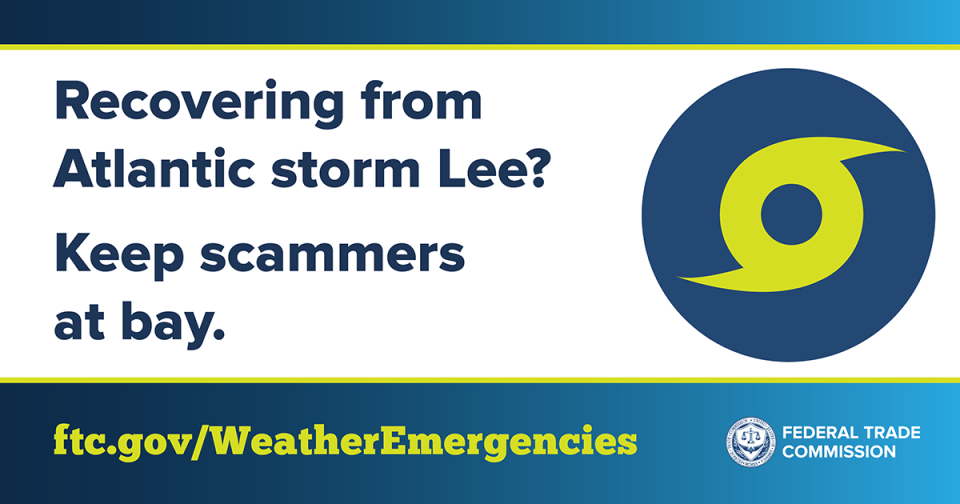Atlantic storm Lee brought near-hurricane strength winds and torrential rains to many New England residents — many already affected by wildfires and severe flooding this summer. When you’re doing your best to recover from the destruction caused by back-to-back natural disasters, the words “I can help” may sound like music to your ears. And that’s exactly what scammers count on to try to steal your money or personal information. So how do you weed out the scammers and get real help?
Scammers might knock on your door and offer help to remove a fallen tree, clean up services for water damage, or help to apply for government assistance. But even if the details change, there are steps to protect yourself from the most common disaster recovery scams.
- Spot unlicensed contractors and scammers promising immediate clean-up or repairs. They’re often the ones who quote outrageous prices, demand payment up front, or lack the skills needed. If they won’t give you copies of their license, insurance, and a contract in writing, don’t hire them.
- Guard your personal information. Only scammers will say they’re a government official and then demand money or your credit card, bank account, or Social Security number.
- Spot FEMA impersonators. If someone wants money to help you qualify for FEMA funds, it’s a scam. Download the FEMA Mobile App to get more information and alerts.
- Never pay by wire transfer, gift card, payment app, or with cryptocurrency or cash. Scammers want to get your money in a hurry, and in ways it’s harder for you to get it back. And never make the final payment until the work is done and you’re satisfied.
Visit ftc.gov/WeatherEmergencies to learn more and share to help others avoid disaster recovery scams. Suspect a scam? Tell the FTC at ReportFraud.ftc.gov.


Dear who may it concern,
Need recovery password to go to phone and not email.
Thanks,
Jonathan L. Kempf